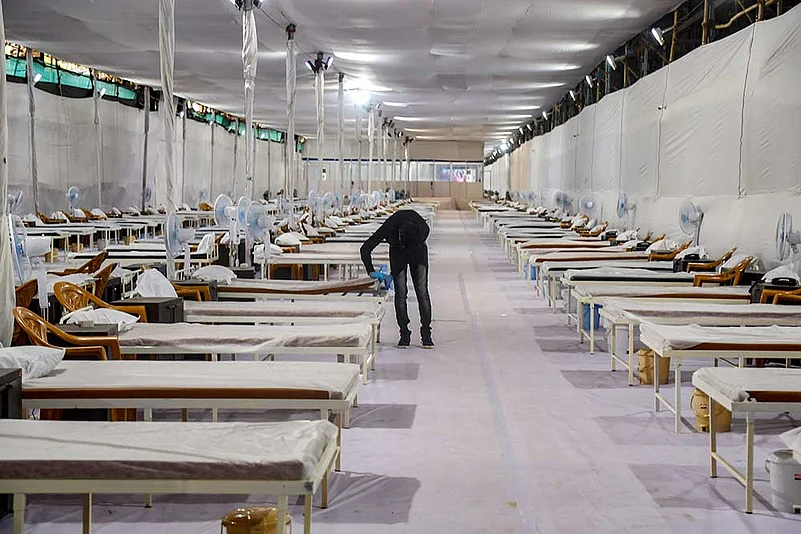The Lieutenant Governor of Delhi, Anil Baijal, on Saturday revised his five-day mandatory quarantine order for Covid-19 patients, and said that only those positive cases, which do not require hospitalisation and do not have home isolation facility, will be sent for institutional isolation.
Baijal tweeted, “Regarding institutional isolation, only those COVID-positive cases which do not require hospitalisation on clinical assessment & do not have adequate facilities for home isolation would be required to undergo institutional isolation.”
This essentially brings back the previous conditions faced by the Covid-19 patients who are either asymptomatic or have mild symptoms.
Earlier, following a spike in Covid-19 cases in Delhi and due to shortage of beds in COVID Care Centres, the Delhi government had decided to allow those patients who didn't need hospitalisation to quarantine at home.
But those who didn’t have the facility of home isolation, were admitted in various Covid Care Centres run by the state or central government in Delhi. For Instance, the YMCA COVID Care Centre is being assisted by Lady Hardinge Medical Hospital (LHMH). These Covid Care Centres are free of cost.
However, those who wanted to pay and got better facilities, could get admitted to various hotels which are attached to many hospitals for nursing care.
For instance, Hotel Siddharth at Rajendra Place, under Dr. B.L. Kapur Memorial Hospital, provides nursing care to the asymptomatic or mild symptom patients.
All international travellers arriving in Delhi are also serving seven-day mandatory institutional quarantine. They can choose either government or private accommodations depending upon their capacity to pay.
After Delhi’s LG order for five-day mandatory institutional quarantine, there was no option for anyone to quarantine at home. He had to get admitted to COVID Care Centres or hotels.
This posed a challenge for the state government to increase number of COVID Care Centre with facilities.
However, as the LG has now rolled back his order, the previous conditions will prevail.
Healthcare professionals say that Baijal’s earlier decision to put every COVID-19 patients into five-day institutional quarantine could have been effective to contain the spread of infection.
“Five-day mandatory institutional quarantine shall go a long way in reducing the local spread of infection in homes, especially because a number of households do not have space and capacity to carry out proper isolation of positive cases,” said Dr Parv Mittal, President of LNJP Resident Doctors’ Association, adding that it would reduce the transmission of infection from the cases under home quarantine to their family members.
Doctors also say that lack of discipline among patients often contributes to the spread of the virus because, instead of staying at home, they come out and mingle with others.
“An asymptomatic Covid-19 carrier is a threat to the life of a patient with comorbidities. Unfortunately, these carriers don’t realise it and remain careless. There are many instances where patients go out and intermingle with others. It was a good decision to keep them under government-controlled quarantine homes,” Dr Alok Roy, Chair-FICCI Health Services Committee, said.
















